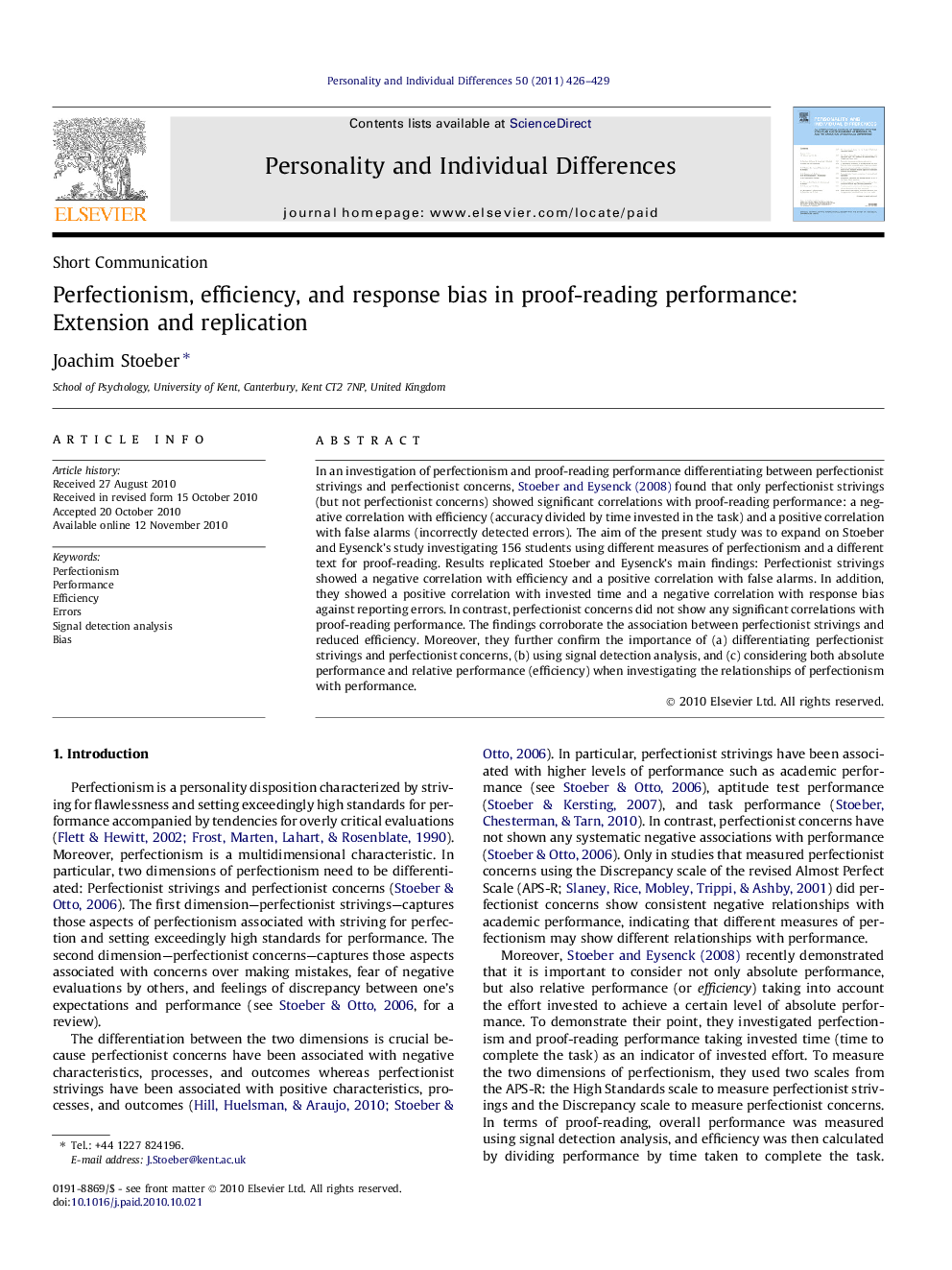| Article ID | Journal | Published Year | Pages | File Type |
|---|---|---|---|---|
| 891603 | Personality and Individual Differences | 2011 | 4 Pages |
In an investigation of perfectionism and proof-reading performance differentiating between perfectionist strivings and perfectionist concerns, Stoeber and Eysenck (2008) found that only perfectionist strivings (but not perfectionist concerns) showed significant correlations with proof-reading performance: a negative correlation with efficiency (accuracy divided by time invested in the task) and a positive correlation with false alarms (incorrectly detected errors). The aim of the present study was to expand on Stoeber and Eysenck’s study investigating 156 students using different measures of perfectionism and a different text for proof-reading. Results replicated Stoeber and Eysenck’s main findings: Perfectionist strivings showed a negative correlation with efficiency and a positive correlation with false alarms. In addition, they showed a positive correlation with invested time and a negative correlation with response bias against reporting errors. In contrast, perfectionist concerns did not show any significant correlations with proof-reading performance. The findings corroborate the association between perfectionist strivings and reduced efficiency. Moreover, they further confirm the importance of (a) differentiating perfectionist strivings and perfectionist concerns, (b) using signal detection analysis, and (c) considering both absolute performance and relative performance (efficiency) when investigating the relationships of perfectionism with performance.
